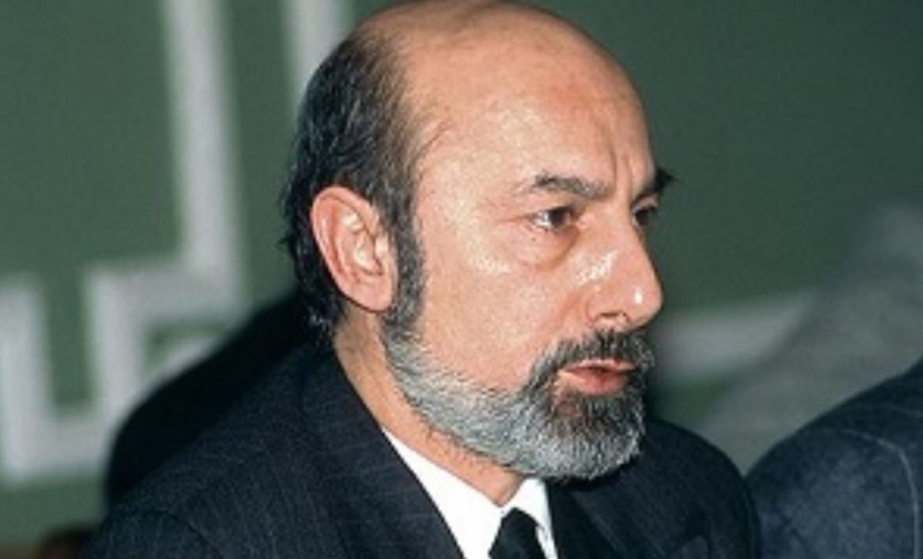– For what purpose were the chemical agents developed?
VU: This fell under the “Foliant” program which was ordered by the Ministry of Defense. The agents were designed as alternative to the Soviet analogy of the American nerve agent, VX.
– Which specific laboratory developed the chemical agent which we now refer to as “Novichok”?
VU: The Volsk branch of GOSNIIOKHT, which is in the Saratov region.... https://thebell.io/en/the-scientist-who-developed-novichok-doses-ranged-from-20-grams-to-several-kilos/
.....................................................................
4-25-18 The retired Soviet scientist,Vladimir Uglev, told The Bell on Wednesday he had been hit while crossing the street close to his home near the Black Sea resort town of Anapa on Tuesday. Uglev says he was hospitalized with head and foot injuries and is recovering. https://themoscowtimes.com/news/novichok-scientist-hit-by-car-in-russia-61260
.............................................................................................
The investigation documents note that Rink was also called the "Chief of the GITOS unit" - the State Institute of Technology of Organic Synthesis in Shikhany. This is a "particularly classified unit, whose employees signed a sensitive data non-disclosure agreement, including when working with potent and poisonous substances."
The FSB Directorate staff of the Saratov region told the investigation that in 1994 some employees of the GITOS "synthesized and sold the poison agent without authorization." The first person killed by such substance was the Head of Rosbiznesbank Ivan Kivelidi. He was poisoned in 1995.
When looking into this case, experts and witnesses, as well as experts related to the substances of Novichok system, testified that work with the substance, which is a top-secret information, was conducted "in the period until 1994". Everybody also corroborated that hundreds of lethal doses of this drug found themselves in the hands of gangsters.
Since Kivelidi was killed with such a substance, it stirred up interest to chemist Rink and to what was happening in the top-secret labs. According to the newspaper, the criminal case on illegal distribution of this substance was classified as "top secret" and went nowhere. https://en.crimerussia.com/gromkie-dela/chemist-rink-could-supply-criminals-with-novichok-back-in-the-90s-/
......................................................
3-23-18 MOSCOW —
A chemist who helped develop the nerve agent that Britain says was used to poison former Russian spy Sergei Skripal and his daughter was investigated in the late 1990s for selling capsules of the toxin to Chechen mobsters.
Leonid Rink, who worked in a Soviet-era chemical weapons facility near the Russian town of Saratov, admitted to investigators after the killing of a Russian banker in 1995 that he sold capsules of the deadly Novichok toxin to Chechen criminals based in Moscow.
Chechen mobsters with ties to Chechnya’s pro-Moscow leader, Ramzan Kadyrov, have been prosecuted in recent years for a string of high-profile killings of opponents of Russian leader Vladimir Putin, including the 2015 slaying of leading opposition figure Boris Nemtsov.
“Yes, I understood these people planned to use the substance against people,” Rink told investigators after the 1995 poisoning of Russian banker Ivan Kivelidi, according to classified testimony published by Novaya Gazeta, an investigative newspaper.
Rink is credited with being one of the Soviet-era creators of the deadly military-grade nerve agent, and he has appeared on Russian state television commenting on the Skripal poisoning. In one interview he said Novichok was “the basis for my doctoral dissertation.” He has accused the British themselves of having poisoned Skripal https://www.voanews.com/a/russian-nerve-agent-scientist-admits-selling-toxin-to-chechen-mobsters-/4313022.html
.....................................................................................
March 16, 2018 After this sequence of suspicious deaths the investigation led to an employer of the scientific laboratory in the institute where the chemical was invented, and his wealthy client, who purchased the formula–a businessman and former victim’s partner – Vladimir Khutsishvili. Both men arrested and sentenced. It is useful to mention that Kivelidi was not just “a” banker, but a chair of a club of bankers, with a pronounced interest in politics.
 -Russian banker Ivan Kivelidi assassinated in Moscow by a powerful nerve agent (1995) https://vandensky.com/2018/03/16/skripal-assassination-omitted-truth/
-Russian banker Ivan Kivelidi assassinated in Moscow by a powerful nerve agent (1995) https://vandensky.com/2018/03/16/skripal-assassination-omitted-truth/
3-8-07 Aug. 4, 1995: Ivan Kivelidi, the founder of Rosbiznesbank and one of Russia's wealthiest men, was poisoned with a nerve agent that had been placed on the telephone in his office. Vladimir Khutsishvili, a member of the bank's board of directors, was arrested on suspicion of murder for a second time last year and is awaiting trial.
April 11, 2002: A Chechen separatist field commander known as Khattab was killed after apparently receiving a poisoned letter. Chechen militants shot and killed the man suspected to have sent the poison on instructions from the Russian Federal Security Service, which denied any connection to the murder.
July 3, 2003: Russian newspaper writer and politician Yury Shchekochikhin died of what was declared a brain hemorrhage. Many of his colleagues suspected that he was poisoned. His investigation of smuggling by the Three Whales stores and news reports about corruption in law enforcement bodies were thought to be the motives.
June 1, 2004: Khizri Aldamov, an ally of a leader of the Chechen separatist movement, was hospitalized along with Aldamov's son and nephew. Georgian Interior Ministry officials determined that Aldamov's car had been poisoned with a substance containing phosphorous. The victim, who recovered, alleged that he was poisoned on orders of the Federal Security Service.
September 2004: Ukrainian opposition leader Viktor Yushchenko, fell seriously ill and was disfigured by dioxin poisoning. The next month he was elected Ukrainian president in a disputed election.
Sept. 24, 2004: Roman Tsepov, general director of the Baltic Escort private security company, died in St. Petersburg, Russia. The cause of his death was poisoning by a medicine used to treat leukemia. Tsepov did not have the disease. The company he headed provided protection to the leaders of the city. The death is still under investigation. http://articles.latimes.com/2007/mar/08/local/me-doctor8/2


No comments:
Post a Comment